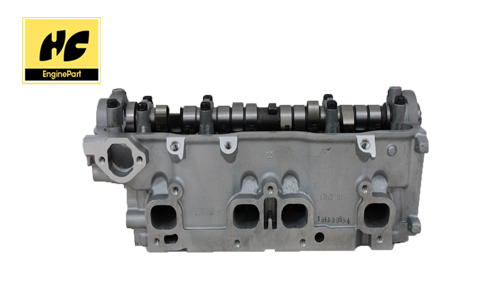Causes and effects of burrs in the main oil passage of cylinder head
2020-09-21
The cylinder head is an important structural component of the engine. The main oil passage hole is an important part of the cylinder head. If the main oil passage hole has burrs, the burrs will block the hydraulic tappet as the oil enters the HVA hole, causing it to fail. , Which in turn makes the valve of the cylinder head unable to close, causing the cylinder block to lack cylinders. Therefore, it is necessary to ensure that no burrs remain in the main oil passage hole.

Causes of burrs on cylinder head oil holes:
The drilling process of the oil passage hole of the cylinder head workpiece is essentially the shear slip process produced by the tool's drill bit squeezing the workpiece. Due to the structure and layout of the oil passage itself, the edges, corners, and corners at the intersection of two or more oil passages are formed. The edge will appear large plastic deformation, the drill bit and the workpiece will have a separation process at the intersection, which is very easy to produce burrs.
The main effects of cylinder head oil hole burrs are:
1. Affect the dimensional accuracy of the workpiece;
2. Affect or interfere with the measurement accuracy of the workpiece;
3. The burrs fall off during processing or transportation, which affects the cleanliness of parts;
4. During the installation process, the burr falls and there is a safety risk of scratches and cuts;
5.During the subsequent processing, the burr falls and causes the loss of the part (negative part), which causes the part to be scrapped;
6. The burr falls, and the burr falls into between the camshaft and the camshaft cover, resulting in abnormal wear of the camshaft and the camshaft cover or even the camshaft locking;
7. The burr falls into the VVT mechanism and causes the mechanism to jam and fail;
8. Affect the lubrication effect, thereby affecting the engine performance.